Financing Options Now Available for HVAC Business Growth
Expanding your HVAC business can be a rewarding journey, but the required financing can often be a significant hurdle. Luckily, there are various financing options now available to help you grow your business successfully. Understanding these options is essential to make informed decisions that can enhance your operations and profitability.
Understanding Your Financing Options
When it comes to financing your HVAC business growth, multiple avenues are available. Each option has its own advantages tailored to different needs and circumstances. Here are some effective financing avenues that you should consider:
- Small Business Loans: Traditional banks and credit unions typically offer small business loans at competitive rates. These loans are ideal for those looking for stable funding over a longer period.
- Short-Term Financing: Options like merchant cash advances provide quick cash but generally come with higher interest rates. If you need immediate funds, this may be a viable option.
- Equipment Financing: This is particularly beneficial for HVAC companies that need to purchase new equipment. Through this type of financing, the equipment itself often serves as collateral, making it easier to secure funds.
- Line of Credit: A business line of credit allows flexibility. You can draw on it as needed, and you only pay interest on the amount used. This is useful for managing cash flow, especially in slower seasons.
- Government Grants and Programs: Various state and federal programs offer grants or low-interest loans specifically aimed at small businesses. Research your locality for these opportunities.
Benefits of Financing for Growth
Choosing the right financing option can lead to significant growth advantages for your HVAC business. Here’s how leveraging financing can benefit you:
- Improves Cash Flow: Financing can help smooth out cash flow, allowing you to manage operational costs without interruption, even during off-peak seasons.
- Facilitates Equipment Upgrades: With the right financing, you can invest in the latest HVAC technology. Upgrading equipment enhances efficiency and service quality, attracting more customers.
- Enables Marketing Initiatives: Financing gives you the capability to invest in marketing campaigns. Effective marketing can draw new clients and boost revenues.
- Supports Staff Training: Investing in your team’s skills can lead to better service delivery. Proper training can also maximize the potential of your business operations.
Evaluating Your Financing Needs
Before committing to any financing option, it’s crucial to evaluate your specific needs and financial situation. Here’s a simple table to help you determine what financing option could work best for you:
| Financing Option | Best For | Average Interest Rate |
|---|---|---|
| Small Business Loans | Long-term growth projects | 4% – 10% |
| Short-Term Financing | Immediate cash needs | 10% – 30% |
| Equipment Financing | New equipment purchase | 5% – 15% |
| Line of Credit | Flexible cash needs | 7% – 25% |
| Government Grants | Business expansion projects | Varies |
Where to Seek Financing
Finding the right financing can be easier if you know where to look. Here are some reputable resources to consider:
- U.S. Small Business Administration – Offers various loan programs catered to small businesses.
- SCORE – Provides resources and mentoring in business financing.
- Bankrate – A good place to compare different loan options and interest rates.
Selecting the right financing options for your HVAC business is crucial for sustainable growth. Each option presents unique features suited to varying circumstances. By examining your needs and the available resources, you can tap into financing that will help elevate your business to new heights.
Understanding the Benefits of Business Financing for HVAC Companies
Business financing is a critical component for HVAC companies looking to grow and thrive in today’s competitive market. By securing proper funding, HVAC businesses can invest in essential tools, training, and marketing campaigns that drive growth and enhance service delivery. Understanding the intricate benefits of financing options can help you make informed decisions for your business.
The Importance of Cash Flow Management
Effective cash flow management is vital for HVAC companies to ensure smooth operations. Financing options allow you to maintain consistent cash flow, which is essential for covering day-to-day expenses, paying employees, and purchasing necessary equipment. With a strong cash flow, you can avoid the pitfalls of seasonal fluctuations in revenue.
Expanding Your Service Offerings
Growth often comes from expanding your service offerings. Whether it’s introducing energy-efficient solutions or developing a maintenance program, financing can provide the capital needed to implement new services. Here’s how:
- Equipment Purchase: Upgrading or purchasing advanced HVAC systems can attract new customers and open new revenue streams.
- Specialized Training: Invest in training programs for your staff to enhance skills and service quality.
- Marketing Campaigns: Financing can facilitate targeted marketing to promote new services to your audience.
Competing in a Fast-Paced Industry
The HVAC industry is ever-evolving with technological advancements. Failing to keep up can result in lost business. Financing options enable you to invest in the latest technologies and tools that enhance your service delivery. Some benefits include:
- Energy-Efficient Systems: Investing in eco-friendly systems can give you a competitive advantage and meet the growing demand for sustainable solutions.
- Diagnostic Tools: Advanced tools can improve service efficiency and customer satisfaction, increasing your repeat business.
Building Customer Trust
Investing in your business through financing options directly impacts customer perceptions. When you continually upgrade your tools and knowledge, clients notice. Employees equipped with the latest technology offer superior service, leading to:
- Increased Customer Satisfaction: Happy customers are likely to recommend your services to others, enhancing your reputation.
- Brand Loyalty: Customers prefer working with businesses that invest in quality and service.
Improved Operational Efficiency
Funding options can improve efficiency across your operation. With adequate financing, you can:
| Area of Investment | Outcome |
|---|---|
| Tools & Equipment | Reduces service time, increasing the number of jobs completed. |
| Software Solutions | Streamlines scheduling, invoicing, and customer relationship management. |
| Staff Training | Enhances employee skills, boosting job performance and customer service. |
Access to Diverse Financing Options
Embracing various financing methods can offer flexibility. Here are some options available for HVAC businesses:
- Traditional Bank Loans: Suitable for long-term investments but may require substantial paperwork.
- Equipment Financing: Financial institutions may offer loans specifically for equipment purchases, often with favorable terms.
- Business Credit Cards: Can be useful for purchasing tools or supplies in smaller amounts.
- Line of Credit: A revolving credit option that lets you borrow as needed for operational expenses.
Utilizing these financing options can empower your HVAC company to meet customer demands, improve services, and enhance profitability. It is crucial to analyze each option, understanding both the potential benefits and the implications of debt.
For more information on HVAC financing solutions, consider visiting HVAC.com or ACHR News. These resources provide valuable insights and updates that can guide your financing decisions.
Ultimately, the right financing can be a game changer for your HVAC business, positioning you for sustained growth and success in a challenging market.
Popular Financing Models for the HVAC Industry
HVAC businesses are constantly seeking ways to grow and adapt to the evolving market. One of the most effective methods to facilitate this growth is through various financing models. Understanding these options can provide HVAC companies the capital they need to expand operations, upgrade technology, and improve service offerings. Here are some popular financing models currently available in the HVAC industry.
Traditional Bank Loans
Traditional bank loans remain a go-to option for many HVAC businesses. These loans usually offer competitive interest rates and longer repayment terms. However, they typically require a strong credit history and collateral. You can use these funds for any purpose, whether it’s buying new equipment, hiring staff, or even marketing efforts.
Advantages of Traditional Bank Loans
- Lower interest rates compared to other financing options.
- Lump sum payment allows for flexibility in managing funds.
- Potential for larger loan amounts, useful for substantial purchases.
Equipment Financing
This model is specially tailored for businesses looking to invest in new HVAC equipment. Equipment financing allows you to borrow money specifically for the purchase of machinery, tools, or systems. The equipment itself serves as collateral, which can make securing funding easier.
Benefits of Equipment Financing
- Preserves cash flow by spreading the cost of the equipment over time.
- Can offer tax benefits, as equipment payments may be tax-deductible.
- Quick turnaround time for funding, typically less than traditional loans.
Leasing Options
Leasing offers a flexible way for HVAC companies to access equipment without the burden of ownership. In this model, you can use the equipment for a fixed period while making regular payments, which are often lower than loan payments.
Types of Leasing
- Operating Lease: A short-term lease that allows you to return equipment at the end of the term.
- Capital Lease: A longer-term lease that often leads to equipment ownership at the end of the payment period.
Business Credit Cards
Business credit cards can be a convenient option for HVAC companies needing quick access to funds for everyday operational expenses. They offer flexibility but usually come with higher interest rates compared to loans.
When to Use Business Credit Cards
- For small, short-term expenses.
- To build your business’s credit score.
- When taking advantage of cashback rewards or other benefits.
Peer-to-Peer Lending
Peer-to-peer (P2P) lending platforms allow you to borrow money directly from individual investors, bypassing traditional financial institutions. This can be an attractive option for HVAC businesses that may struggle to secure loans through banks due to credit issues.
Why Consider P2P Lending?
- Less strict credit score requirements.
- Faster approval and funding processes.
- More flexible repayment terms based on investor agreements.
Government Grants and Subsidies
Various government programs offer grants and subsidies aimed at supporting HVAC businesses focused on energy efficiency. These funds can significantly reduce the cost of equipment and installations.
Examples of Available Programs
Understanding the different financing options available for HVAC business growth is vital. Each model has its own set of pros and cons, catering to different needs. By choosing the right financing strategy, you can set your HVAC business on a path to sustainable growth and success.
For more information on financing options and to see how they can fit your needs, visit HVAC.com or BGO Financial.
Grant Opportunities for HVAC Business Expansion
As an HVAC business owner, you understand the importance of staying competitive in a rapidly changing market. Expansion often means investing in new equipment, technology, or training for your workforce. Fortunately, there are various grant opportunities available that can help you achieve your business growth goals without straining your financial resources. Let’s explore these funding options tailored to the HVAC industry.
Types of Grants for HVAC Businesses
Numerous grants specifically cater to the HVAC sector. Understanding which grants are applicable to your business can pave the way for a successful expansion. Here are some types of grants you might consider:
- Federal Grants: Programs like the Grants.gov platform list federal government grants available for your HVAC business.
- State Grants: States offer various grants aimed at boosting local economic development. Check your state’s economic development office for specific programs.
- Utility Company Grants: Many utility companies provide grants to promote energy efficiency programs that encourage the installation of energy-efficient HVAC systems.
- Environmental Grants: Programs aimed at sustainable energy practices, such as the EPA grants, can provide funding for environmentally friendly HVAC upgrades.
Eligibility and Application Process
Before applying for grants, it’s essential to understand the eligibility criteria. Here’s a general outline of what you might encounter:
| Grant Type | Eligibility | Application Process |
|---|---|---|
| Federal Grants | Must meet federal guidelines, including business size and revenue restrictions. | Register on Grants.gov, complete the application, and submit relevant documents. |
| State Grants | Varies by state; often requires a business plan or proof of community impact. | Contact your state’s economic development office for specific forms and deadlines. |
| Utility Company Grants | Based on energy-saving measures proposed; must work with an approved contractor. | Fill out the utility company’s application detailing the proposed upgrades. |
| Environmental Grants | Must have a focus on sustainability and reducing carbon footprint. | Follow application procedures outlined by specific environmental agencies. |
How to Increase Your Chances of Receiving a Grant
While grants can be incredibly beneficial, the competition can be fierce. Here are some strategies to enhance your chances:
- Prepare a Strong Business Plan: A well-drafted business plan articulates your vision clearly, showing potential for growth and community impact.
- Gather Supporting Documentation: Include financial statements, project plans, and any certifications that enhance your company’s credibility.
- Follow Grant Guidelines: Ensure that every application aligns with the requirements set by the granting agency.
- Engage with the Grantor: Don’t hesitate to communicate with the agency for clarifications or advice; this shows your genuine interest and commitment.
Examples of Available Grants
Here are some specific grants related to HVAC expansion that you might find beneficial:
- Energy Star’s ENERGY STAR Partner of the Year Awards: Recognizes organizations helping to reduce greenhouse gas emissions through energy efficiency.
- HVAC Schools 411 Scholarships: Provides financial support to HVAC students, helping you to foster a qualified workforce.
- National Conference of State Legislatures (NCSL): Offers a list of state-specific energy efficiency grant programs.
Exploring grants for your HVAC business can open new doors for expansion and innovation. Whether you are looking to improve equipment, train staff, or enhance service, these funding avenues can relieve financial pressures and help you achieve significant growth. Don’t hesitate to start your research today and connect with relevant organizations for guidance!
The Role of Credit Scores in Securing HVAC Business Financing
Understanding the intricacies of securing financing for your HVAC business can be pivotal for growth and sustainability. One vital aspect of this process is the role of credit scores. Your credit score can significantly influence your ability to access funding. In fact, it often determines not only whether you’ll get a loan but also the interest rates and terms associated with it. Let’s delve into how credit scores shape your financial opportunities in the HVAC industry.
The Importance of Credit Scores
Your credit score is a numerical representation of your creditworthiness, summarizing your borrowing history and financial behavior. A higher credit score generally indicates reliability to lenders. Here are a few key points about why your credit score is essential for HVAC business financing:
- Access to Capital: Lenders are more likely to approve loans for businesses with stronger credit profiles. This is especially important for HVAC businesses that rely on financing for equipment purchases, training, and expansion.
- Interest Rates: A good credit score can earn you lower interest rates, saving your business money over time. Businesses with lower credit scores often face higher rates, resulting in greater expense burdens.
- Loan Options: Better credit opens the door to various financing options. This flexibility can be crucial in choosing the best fit for your unique business needs.
Factors That Influence Your Credit Score
<pSeveral components contribute to your credit score. Understanding these factors can help you manage your score effectively:
- Payment History: Consistent and timely payments on loans, credit cards, and other obligations have a positive effect on your score.
- Credit Utilization: It’s essential to maintain low balances relative to your total available credit. Ideally, you should strive to use less than 30% of your credit limit.
- Length of Credit History: A more extended credit history signals stability. Start building your credit as early as possible by responsibly managing accounts.
- Types of Credit: Using a mix of credit types—loans, credit cards, leases—can also positively impact your score.
- New Credit: Opening many accounts in a short time can lead to a dip in your score. Manage new applications wisely.
How to Improve Your Credit Score
<pIf you’re looking to secure financing for your HVAC business, it’s wise to take proactive steps to boost your credit score. Here are some effective strategies:
- Pay Bills on Time: Establish a habit of timely payments. Consider setting reminders or automatic payments to avoid late fees.
- Reduce Debt: Actively pay down high-interest debts. This helps to improve your credit utilization rate.
- Check Your Credit Report: Regularly review your credit report for errors. Dispute any inaccuracies you find.
- Avoid Unnecessary Credit Inquiries: Limit your applications for new credit. Too many inquiries can hurt your score.
Credit Scores and Lenders
<pLenders use credit scores to assess the risk of lending to a business. Depending on the range of your score, you may find varying options available:
| Credit Score Range | Loan Options | Typical Interest Rates |
|---|---|---|
| 300 – 579 | Limited options, high-interest loans | 15% – 30% |
| 580 – 669 | Fewer options, moderate rates | 10% – 15% |
| 670 – 739 | Good options, reasonable rates | 5% – 10% |
| 740 and above | Best options, lowest rates | 3% – 5% |
As you look to grow your HVAC business, consider your credit score as a vital milestone on your financial journey. By taking proactive steps in managing and improving your score, you can unlock better financing options now available for HVAC business growth. For more information, explore resources like SBA Financing or SCORE, which offers tools and guidance tailored for business owners.
Refining your credit score can lead to significant benefits for your HVAC business. Understanding its impact allows you to strategically position yourself in the ever-evolving market of HVAC financing.
Innovative Financing Alternatives for HVAC Startups
Starting an HVAC business can be an exciting venture for those looking to enter this fast-growing industry, but financing can often be a challenge. Thankfully, there are several innovative financing alternatives specifically designed for startups in the HVAC sector. By utilizing these options, you can secure the necessary capital to get your business up and running without the heavy burden of traditional loans.
Understanding Your Financing Needs
Before diving into financing options, it’s crucial to understand your specific needs. Whether it’s purchasing equipment, funding marketing, or hiring staff, clearly defining your requirements can help you determine the best financing strategy. Start by creating a list that includes:
- Equipment costs
- Operating expenses
- Marketing budget
- Employee salaries
- Emergency funds
Alternative Financing Options
There are several financing paths that new HVAC businesses can explore. Each has its own set of advantages and considerations:
1. Equipment Financing
Equipment financing allows you to purchase or lease HVAC equipment while spreading the costs over time. This option is particularly beneficial for new businesses that may not have large amounts of capital upfront. Not only can it help with cash flow, but it also provides the latest technology without requiring full payment upfront.
2. Crowdfunding
Crowdfunding platforms such as Kickstarter or Indiegogo allow you to raise small amounts of money from a large number of people. By sharing your business idea and fundraising goals, you can connect with potential customers and investors who are interested in supporting your HVAC startup.
3. Small Business Grants
Various organizations and government programs offer grants specifically for HVAC startups. These grants do not require repayment, making them an attractive option for financing. Websites like Grants.gov provide an extensive database of available grants that may suit your business needs.
4. Angel Investors and Venture Capitalists
Seeking funding from angel investors or venture capitalists can provide the necessary boost to launch your HVAC business. These investors often look for promising startups with a solid business model and growth potential. Establishing a robust business plan and pitch can help you attract these investors’ interest.
5. Line of Credit
A line of credit gives you access to funds as needed, rather than a lump sum. This flexibility can be incredibly beneficial for managing cash flow, especially during the initial stages of your HVAC business. Local banks or credit unions often provide lines of credit tailored for small businesses.
Choosing the Right Option for Your Business
With multiple financing alternatives available, it’s essential to assess which option aligns best with your business goals and financial situation. Consider factors such as:
- Repayment terms
- Interest rates
- Required collateral
- Admin costs
If possible, consult with a financial advisor or a mentor in the HVAC industry. Their guidance can help you decipher which financing path will provide the most benefits for your startup.
Building a Strong Business Plan
A well-drafted business plan is not just crucial for securing financing; it also serves as a roadmap for your HVAC business. Key components should include:
- Market Analysis
- Sales Strategy
- Financial Projections
- Operational Plan
These details will give potential investors and lenders a clearer picture of your business and its potential for growth.
Networking and Support
Joining HVAC organizations or attending industry events can expose you to networking opportunities that may lead to financing options. Associations such as the Air Conditioning Contractors of America (ACCA) and the Heating, Refrigeration and Air Conditioning Institute of Canada (HRAI) can provide valuable resources and connections.
As you navigate the complexities of financing, remember that persistence and a clear strategy will significantly impact your success in raising the necessary funds for your HVAC startup. Explore options, build relationships, and stay focused on your business goals.
Tips for Choosing the Right Financing Option for Your HVAC Business
Choosing the right financing option is essential for the growth of your HVAC business. With a variety of solutions available, it can be overwhelming to decide which one fits your needs best. Understanding the different types of financing options can help you make an informed decision, ultimately supporting your business’s expansion and sustainability.
Understanding Your Financing Needs
Before diving into financing options, assess your specific needs. Evaluate whether you need funds for:
- Purchasing new equipment
- Hiring additional staff
- Expanding your service area
- Marketing and advertising efforts
Clarifying your goals will guide you toward the right financing option.
Types of Financing Options
Several financing methods cater to businesses in the HVAC industry. Here are some of the most popular options:
1. Traditional Bank Loans
Bank loans can be a great choice if you have strong credit. These loans typically have lower interest rates and longer repayment terms. However, the application process can be time-consuming, and the approval may depend heavily on your credit history and business financials.
2. Equipment Financing
If you’re looking to purchase new HVAC equipment, equipment financing is specially designed for this purpose. You can often finance up to 100% of the equipment cost, and the equipment itself serves as collateral. This can make it easier to secure funding.
3. Merchant Cash Advances
This option provides a lump sum of cash in exchange for a percentage of your future sales. While this can provide quick funds, it often comes with higher fees and is best suited for businesses needing immediate cash flow. It’s essential to assess if the costs align with your long-term financial strategy.
4. SBA Loans
The Small Business Administration (SBA) loans are an excellent choice for HVAC businesses looking for lower rates and longer repayment terms. These loans are partially guaranteed by the government, making it easier for small businesses to access affordable funding.
5. Line of Credit
A business line of credit offers flexible access to funds. You can borrow money as needed, up to a specific limit, and you only pay interest on what you withdraw. This is ideal for managing day-to-day expenses or unexpected costs.
6. Peer-to-Peer Lending
Online platforms connect borrowers with individual investors willing to fund their business. This can be a faster option than traditional loans, but terms may vary widely. Ensure you research each platform to find one that meets your financing needs.
Evaluating Financing Options
When evaluating different financing options, consider the following factors:
- Interest Rates: Look for competitive rates that will not strain your business’s cash flow.
- Repayment Terms: Ensure that the repayment terms align with your revenue patterns and business growth.
- Fees: Watch for any hidden fees that can increase your overall cost.
- Approval Time: Determine how quickly you need the funds and choose an option that meets your timeline.
Getting Expert Advice
Consulting with a financial advisor or a lending expert can help you navigate the complexities of financing. They can provide insights into which options best suit your HVAC business’s unique needs and financial situation.
Where to Find More Information
The HVAC industry continues to evolve, and so do financing solutions. For additional resources and guidance, consider visiting:
- SBA.gov – Learn about loan options and resources for small businesses.
- HVAC Business Growth – Explore articles that provide insights on financing and growing your HVAC business.
Financing options are crucial for the expansion of your HVAC business. By understanding what’s available and how to evaluate each option, you can make informed decisions to help your business thrive.
| Financing Option | Best For | Pros | Cons |
|---|---|---|---|
| Traditional Bank Loans | Larger projects | Lower interest rates | Strict approval process |
| Equipment Financing | Purchasing equipment | High funding amounts | Depreciation risk |
| Merchant Cash Advances | Immediate cash flow | Quick approval | Higher fees |
| SBA Loans | Long-term investments | Lower rates | Longer approval time |
| Line of Credit | Flexible funding | Pay only what you use | Potential for overspending |
| Peer-to-Peer Lending | Smaller amounts | Fast processing | Variable terms |
Key Takeaway:
The HVAC industry faces unique challenges in regards to growth and expansion, especially for small and medium-sized businesses. Recognizing the various financing options now available can significantly impact your business’s success. Understanding these opportunities can help HVAC companies modernize their equipment, expand their service area, and improve their workforce efficiency, ultimately leading to increased revenue.
One of the key benefits of business financing for HVAC companies is the ability to invest in cutting-edge technology and tools that improve service quality and customer satisfaction. Innovative financing models, such as equipment leasing or unsecured business loans, can ease the financial burden of such investments while allowing businesses to remain competitive. For HVAC startups, exploring innovative financing alternatives, such as crowdfunding or microloans, can provide the necessary capital to launch operations without hefty upfront costs.
Moreover, it’s vital to keep in mind the role of credit scores when pursuing financing. A solid credit history can unlock better interest rates and terms, making it easier for you to secure funding. Consequently, maintaining a healthy credit score should be a priority, as it reflects your reliability and financial management skills to lenders.
Grant opportunities also present a viable financing option for HVAC businesses looking to expand. Many local and federal programs offer grants aimed at helping companies innovate, reduce energy consumption, or take on environmentally friendly practices. These grants can provide non-repayable funds that significantly alleviate the financial load.
When selecting the right financing option for your HVAC business, consider factors such as the total cost of financing, payment terms, and your business’s growth goals. Analyzing these factors, alongside understanding the benefits of each financing model, can guide you towards making informed choices.
Leveraging financing options cleverly allows HVAC businesses to thrive. By understanding and utilizing available resources, including loans, grants, and innovative funding alternatives, you can position your HVAC business for sustainable growth and increased market presence. Consider each option carefully, prioritize your financial health, and take advantage of these resources to foster your HVAC business’s success.
Conclusion
Exploring the financing options now available for HVAC business growth opens up a world of possibilities. As you consider the benefits of business financing, remember that it can provide the leverage needed to expand your operations, improve your service offerings, and ultimately boost your bottom line. Whether through traditional models like loans and lines of credit or innovative alternatives tailored for startups, each option presents unique advantages that can align with your goals.
Grant opportunities also deserve your attention, as they can provide substantial funding without the burden of repayment—especially crucial for businesses looking to expand and invest in new technologies. However, understanding the role of credit scores is vital in this process; maintaining a strong credit profile can enhance your eligibility for financing and make the application process smoother.
When choosing the right financing option for your HVAC business, it’s essential to evaluate your specific needs, assess your financial health, and consider long-term implications. Researching all available options, including unconventional financial models, can help you find solutions that not only meet your immediate needs but also support sustainable growth.
Ultimately, the right financing strategy can propel your HVAC business forward, enabling you to seize new opportunities, innovate, and stay competitive in a rapidly evolving market. By making informed decisions, you position your business not just to survive, but to thrive in the HVAC industry. So take the time to explore these various avenues and choose the best path for your growth journey.
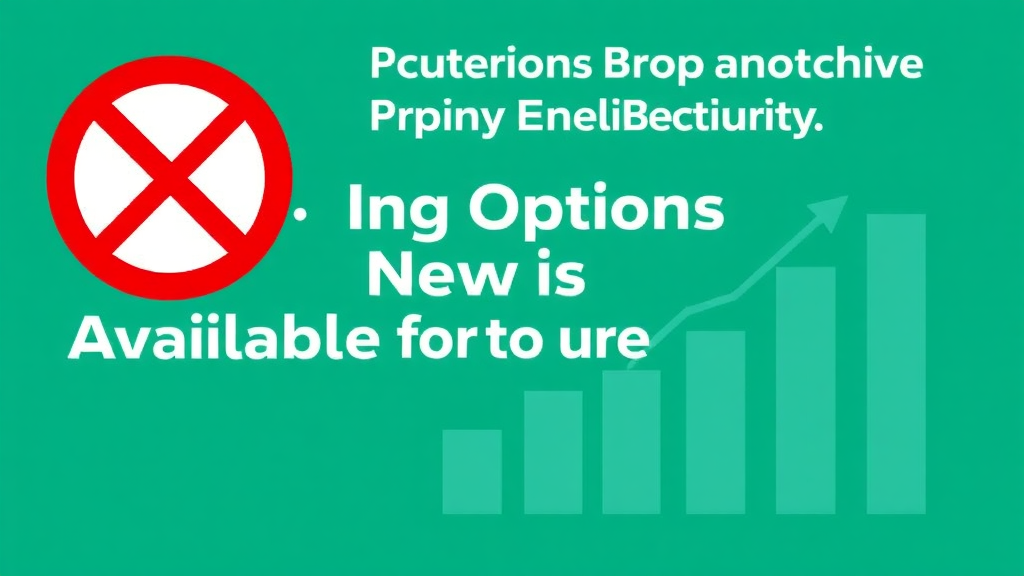
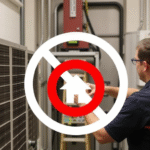

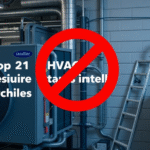
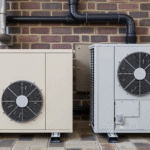
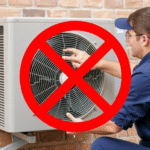
Leave a Reply